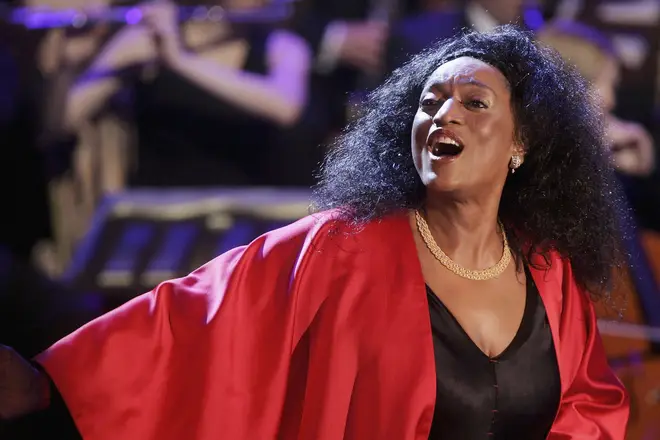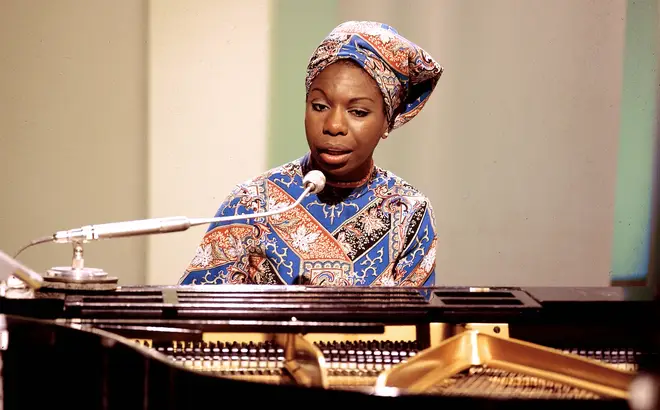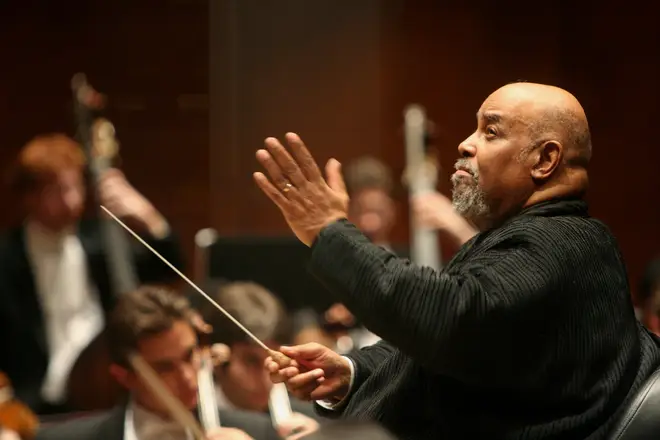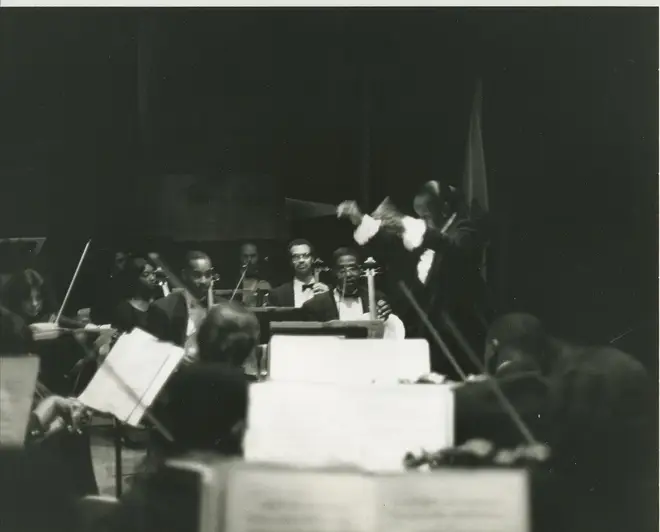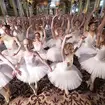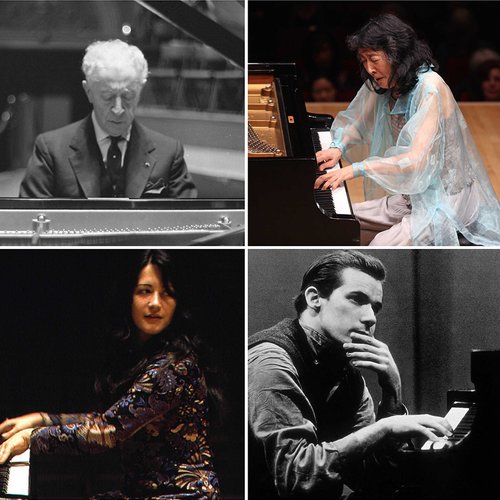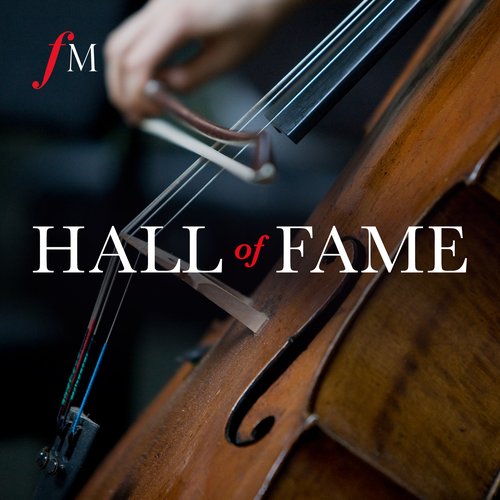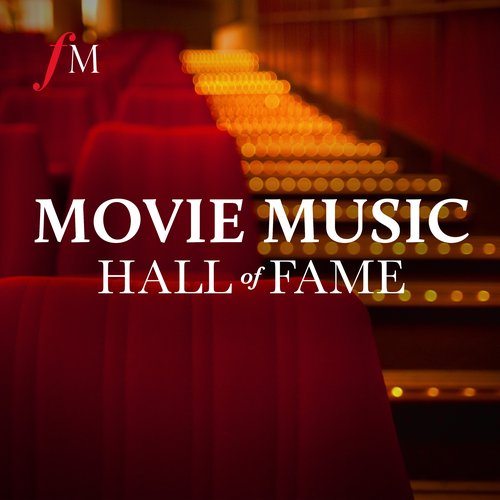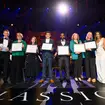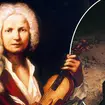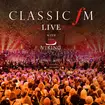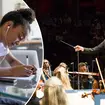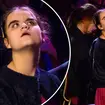25 Black musicians who have shaped the classical music world
2 October 2023, 16:57
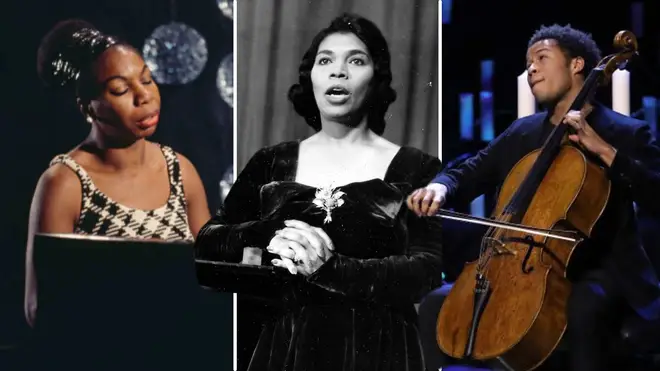
We celebrate some of the most influential Black voices the classical music world has known.
In a world that didn’t always welcome them with open arms, many of these wonderful singers, instrumentalists, composers and conductors shattered racial barriers on the concert stage, and helped shape landmark moments in classical music.
From Nina Simone fusing the worlds of gospel and classical music, to tenor Roland Hayes becoming the first African American concert artist to win international acclaim, here are some of the most influential Black voices in classical music history – from the 18th century to today.
Read more: 10 Black composers who changed the course of classical music history
-
Marian Anderson (1897 - 1993)
Opera singer Marian Anderson’s extraordinary musical range spread from lieder, to opera, to spirituals. The legendary African-American contralto, however, is perhaps most famed for becoming the first Black singer to perform at the Metropolitan Opera in New York, in 1955.
Despite being one of the greatest singers of her generation, she was often faced with exclusion, and her performances were protested against. Anderson was once barred from a concert due to take place at the DAR Constitution Hall in Washington, D.C. in 1939.
With the help of the President, Anderson was instead invited to perform on the steps of the Lincoln Memorial on Easter Sunday 1939. Over 75,000 audience members came to hear her sing, and millions more tuned into the live radio broadcast.
Read more: 10 poignant and iconic photographs from classical music history

Marian Anderson - "Deep River" (Spiritual)
-
Wynton Marsalis (1961-)
Trumpeter Wynton Marsalis is one of the biggest stars in jazz, but his inventive and infectious jazz, gospel and spiritual-infused compositions have become some of the most important new works to hit classical concert halls.
In 1997, Marsalis became the first jazz musician to win the Pulitzer Prize for Music with his oratorio Blood on the Fields. And it’s his violin concerto, a work composed for violinist Nicola Benedetti, that’s making waves today.
Read more: “Jazz anticipated this moment” – Wynton Marsalis on Black Lives Matter and the power of music

Wynton Marsalis Haydn Trumpet Concerto
-
Jessye Norman (1945 - 2019)
When news of Jessye Norman’s death was announced last year, the Met described her as “one of the great sopranos of the past half-century”.
One of the rare Black opera singers to achieve worldwide stardom, Norman performed in the best opera houses and with the best orchestras and conductors throughout the world, including at La Scala, with the Berlin Philharmonic and under the baton of Sir Colin Davis.
An African American born in Georgia, Norman credited other great Black singers including Leontyne Price and Marian Anderson (see above) with paving the way for her. “They have made it possible for me to say, ‘I will sing French opera,’” she told The New York Times in 1983, “Or, ‘I will sing German opera,’ instead of being told, ‘You will sing Porgy and Bess’.”
She added: “It’s unrealistic to pretend that racial prejudice doesn’t exist. It does! It’s one thing to have a set of laws, and quite another to change the hearts and minds of men. That takes longer. I do not consider my blackness a problem. I think it looks rather nice.”
American opera singer Jessye Norman in 2006. Picture: Getty -
Thomas ‘Blind Tom’ Wiggins (1849 - 1908)
‘Blind Tom’ was born the son of slaves. By the age of 10, he was the highest paid pianist of the 19th century. Wiggins was a musical prodigy, and travelled throughout North America performing music by Bach, Beethoven and his own works. He also wrote more than 100 piano compositions in a 19th-century parlour style.
Crucially, ‘Blind Tom’ was one of the most celebrated black concert performers of the 19th century, but in comparison to contemporary virtuosos like Liszt and Rubinstein, he is virtually unknown today.
Read more: The story of Thomas ‘Blind Tom’ Wiggins, a 19th-century piano prodigy born into slavery

Thomas "Blind Tom" Wiggins - Battle of Manassas (1861)
-
Camilla Williams (1919 - 2012)
In 1946, soprano Camilla Williams became the first Black woman to secure a contract with a major US opera company, making her debut as Cio-Cio-San in New York City Opera’s Madam Butterfly.
In 1954 she also became the first African American to sing a major role with the Vienna State Opera.
The American operatic soprano notably performed a rendition of the National Anthem at the Lincoln Memorial in 1963 before Martin Luther King Jr. delivered his ‘I Have a Dream’ speech.

Camilla Williams – Summertime, 1946
-
Scott Joplin (1868 - 1917)
Despite perhaps being best known as a jazz pianist and composer, Scott Joplin is one of music history’s most important Black icons.
Titled the ‘Ragtime King’, Joplin composed over 40 pieces in the genre as well as one ragtime ballet, and two operas. His opera Treemonisha even posthumously won him a special Pulitzer Prize in 1976.
Joplin’s ideas around harmony and structure within music continue to inspire musicians today, cementing him as one of the most influential composers of the 20th century.
Read more: Who was Scott Joplin, the ‘King of Ragtime’?

Pineapple Rag - Scott joplin
-
Hazel Scott (1920 - 1981)
Hazel Scott was a phenomenal jazz and classical pianist – and she used her influence to help make the arts a richer, more inclusive place for Black Americans.
As well as being the first person of African descent to host their own network TV show in America – The Hazel Scott Show – Scott was heavily involved in civil rights and she refused to take on film roles that cast her as a black stereotype.
The Trinidadian-born star with West African heritage also became known for playing on two pianos simultaneously. Scott would sit on a single stool with a piano either side – for anyone who watched the 2019 Grammys, you might remember the moment Alicia Keys paid tribute to Scott with a beguiling self-duet on piano(s).

Takin' A Chance--Hazel Scott
-
Robert McFerrin (1921 - 2006)
In January 1955, Robert McFerrin became the first Black man to sing a leading role at the Met Opera, appearing as Amonasro in Verdi’s Aida. The great American baritone went on to perform in 10 operas over three seasons.
One year later, the legendary baritone became the first Black performer to sing led at both the Naples and San Carlo Opera.
McFerrin also notably provided the singing voice for actor Sidney Poitier in the 1959 film version of George Gershwin’s Porgy and Bess.

Robert McFerrin - "Pari siamo" from Verdi's "Rigoletto" (from original LP)
-
Dorothy Donegan (1922 - 1998)
The vivaciously virtuosic American jazz pianist Dorothy Donegan began her musical career as a classical musician and subsequently drew from a multitude of genres for her jaw-dropping performances.
In this stupendous clip from the Ed Sullivan Show below, Donegan brings together George Gershwin’s Rhapsody in Blue and ‘The Man I Love’ alongside snippets of ‘Strike Up the Band’, Rachmaninov’s C sharp minor Prelude and Chopin’s A flat major Polonaise.
Unfortunately, this otherworldly talent faced racial prejudice, sexism, and musical gatekeeping during her rise to fame in the mid-20th century, and it wasn’t until later in her life that she began to receive the accolades she deserved.

Dorothy Donegan "Rhapsody In Blue & The Man I Love" on The Ed Sullivan Show
-
Roland Hayes (1887 - 1977)
Born in a plantation cabin in Georgia in 1887, lyric tenor and composer, Roland Hayes, was the first African American man to win international fame as a concert artist. Hayes’ voice caused a sensation throughout Europe and the US, and he became the first African American to perform with the great Boston Symphony Orchestra.
In 1939 Hayes broke another extraordinary barrier, by recording with Columbia Records. It was the first time a black concert artist had been recorded classically – previously, record labels had only been after “vaudeville”-style singers.

Roland Hayes "Were You There"
-
Donald White (1925 - 2005)
When he was hired as a cellist in the Cleveland Orchestra by George Szell in 1957, Donald White became the first Black musician in a ‘Big Five’ US orchestra.
But throughout his career, White faced racism and intolerance. During a southern tour in 1961, the manager at a concert hall in Birmingham, Alabama tried to bar him from going on stage. The orchestra declined to appear without White and Szell threatened to cancel the show, at which point the city’s mayor allowed White to play alongside his fellow musicians.

How Donald White and the Cleveland Orchestra beat desegregation in the South in 1961
-
Dean Dixon (1915 - 1976)
In 1941 Dean Dixon, aged just 26, conducted the New York Philharmonic at a summer parks concert, making him the first African American to lead the orchestra. Over the next three years, both the Philadelphia and Boston Symphonies invited Dixon to their podiums.
The talented conductor would go on to make a name for himself internationally and at the 1968 Olympic Games, Dixon conducted the Mexican National Symphony Orchestra.
He left the United States to become the conductor for the Israel Philharmonic Orchestra in 1949, and was later appointed as the principal conductor of the Gothenburg Symphony in Sweden, the Sydney Symphony Orchestra in Australia, and the Frankfurt Radio Symphony (hr-Sinfonieorchester) in 1961–74.

Bruckner Ouverture in G minor - Kölner RSO - Dean Dixon (1959)
-
William Grant Still (1895 - 1978)
The multi-faceted William Grant Still became the first African American to conduct a professional symphony orchestra in the United States in 1936. The orchestra in question, was none other than the Los Angeles Philharmonic, one of the world’s premiere ensembles.
Still conducted a programme of his own works, which is unsurprising when you learn he composer more than 200 pieces. These included five symphonies, four ballets, nine operas, and over thirty choral works, art songs, chamber music, and solo works.
Due to his astonishing compositional CV, he is often referred to as the ‘Dean of Afro-American Composers’. As well as being the first African American to conduct a professional symphony, he is also credited as being the first to have a symphony performed by a leading orchestra, have an opera performed by a major opera company, and have an opera performed on national television.
Read more: Five of the best pieces of music by William Grant Still

Gustavo Dudamel - LA Phil SOUND/STAGE: William Grant Still, Afro-American Symphony, II. "Sorrow"
-
Leontyne Price (1927-)
American lyric soprano Leontyne Price, 93, is widely considered the first African-American opera star to achieve international success.
In 1960, Price made history as the first African American to sing solo at Milan’s La Scala, in Verdi’s great opera Aida. Price notably gave 204 performances at the legendary Metropolitan Opera during her career, and over half of these were as one of Verdi’s leading ladies.
As one of the Met’s leading prima donnas in the 1960s onwards, Price accompanied the opera company on tours around southern theatres, which were still segregated at the time. Price’s performances were therefore an integral factor in the changing of these venue’s discriminatory policies.
Read more: 20 of the greatest sopranos and mezzos of all time

Leontyne Price Performs ´Vissi D´arte
-
Henry Lewis (1932 - 1996)
The year was 1948 when Henry Lewis, a young double bass prodigy, joined the Los Angeles Philharmonic aged 16 and became the first African American instrumentalist in a major symphony orchestra.
Lewis made another first, 20 years on, when he became the first Black person to become music director of a major American orchestra after being hired to lead the New Jersey Symphony Orchestra.

The Symphony sound w/ Henry Lewis and the Royal Philharmonic [Doc]
-
Sheku Kanneh-Mason (1999-)
Sheku’s glittering career has been one ‘first’ after another. The young cellist first found fame after becoming the first black artist to win BBC Young Musician of the Year. Soon after, he went on the play at the wedding of Prince Harry and Meghan Markle, playing Fauré and Schubert to an audience of two billion.
At the beginning of 2020, Sheku became the first cellist in chart history to reach the UK Official Album Chart Top 10, in a groundbreaking moment for classical and pop music. The 21-year-old cellist is a remarkable story – and it gets all the more special when you look at his family. Incredibly, Sheku’s six siblings, the Kanneh-Masons, all share exceptional musical talents.

Sheku Kanneh-Mason plays 1783 Guadagnini cello owned by Rostropovich
-
George Walker (1922 - 2018)
A composer, pianist and organist, George Walker wrote almost 100 pieces of music spanning chamber music, orchestra scores, and vocal works.
The composer drew on inspirations from the Western classical tradition, as well as the soundworld of African-American spirituals and jazz.
Notably, Walker became the first Black composer to win the coveted Pulitzer Prize for Music in 1996, for his work Lilacs, for soprano and orchestra. During his lifetime, he was awarded two Guggenheim Fellowships, an American Academy of Arts and Letters Award, and honorary doctorates from six institutions.
Read more: Remembering George Walker, the first Black composer to win the Pulitzer Prize for Music

George Walker: Lyric for Strings
-
Nina Simone (1933 - 2003)
A pianist with a remarkable contralto voice, Nina Simone was an artist like no other. She fused gospel and pop with classical music, and had a great passion for Bach.
Simone is now recognised as one of America’s most iconic jazz artists – but she initially wanted a career as a classical pianist. As a young woman she enrolled in New York’s Juilliard School, then applied for a scholarship to study at Philadelphia’s Curtis Institute, where she was denied admission despite a great audition.
The young pianist called out the Institute for racial discrimination. In 2003, just days before her death, they awarded her an honorary degree.
Nina Simone fused pop, gospel and classical. Picture: Getty -
Joseph Bologne, Chevalier de Saint-Georges (1745 - 1799)
Joseph Bologne, Chevalier de Saint-Georges was a Caribbean-born composer, violinist, and master swordsman living in France during the 18th century.
In 2022, the multi-talented historical figure got his own biopic Chevalier which detailed his rise to fame in Paris as the director of the musical ensemble ‘Concert des Amateurs’. Bologne was a violin virtuoso and was one of the few musicians admitted to perform music for Marie Antoinette, Queen of France.
This legendary talent wrote at least twelve violin concertos, two symphonies, and eight sinfonia-concertantes during his lifetime, and perhaps now, with the release of the recent biopic, has finally received the acclaim he so deserved three centuries ago.

Watch the official trailer for Chevalier
-
James DePriest (1936 - 2013)
When DePriest died seven years ago, the classical world lost one of the first African-American maestros to have taken to its main stage. DePriest was a pioneering conductor, National Medal of Arts winner and poet, who was at the helm of the Oregon Symphony for 25 years.
The nephew of the pioneering contralto Marian Anderson (see above), DePreist told NPR that his aunt had provided great inspiration. “She knew that she was Marian Anderson,” DePreist said, “But my aunt was simultaneously the most humble person I ever met in my life and the most powerful. And it was a combination of her not needing to strut her strength, because it was just a natural part of her. To the extent that anything has rubbed off, then I’m grateful.”
James DePriest conducting the Juilliard Orchestra in 2006. Picture: Getty -
Martina Arroyo (1936-)
Soprano Martina Arroyo, 84, whose major international opera career spanned from the 1960s to the 1980s, is considered a pioneer and instrumental voice of change in breaking down racial barriers for Black opera singers.
She was one of the first black opera stars of Puerto Rican descent to launch an international career, and the first black woman to play Elsa in Wagner’s Lohengrin.

Martina Arroyo at 22 years old: Metropolitan Opera Auditions of the Air - O patria mia
-
Sanford Allen (1939-)
From when he joined in 1962, to when he left in 1977, violinist Sanford Allen was the only African American member of the New York Phil, in its (then) 133-year history.
When he quit after 15 years, Allen said he was “simply tired of being a symbol”. Instead, he pursued a new career as a freelance violinist, and has since worked extensively in recording film music.

String Duo No. 2 in B-flat major for violin and viola, K. 424, Wolfgang Amadeus Mozart
-
Terence Blanchard (1962-)
In 2021, Terence Blanchard made history as the first Black composer to see their opera performed at the legendary Metropolitan Opera in New York.
Fire Shut Up in My Bones opened the opera company’s 2021-2022 season, a slot it hadn’t originally been intending to fill, but Met manager, Peter Gelb thought the move to such a prominent slot appropriate in light of the Black Lives Matter movement.
Blanchard has composed over 40 film scores and performed on more than 50 as a trumpeter. He has received five Grammy awards and has been nominated for the Academy Award for Best Score twice.

Fire Shut Up in My Bones: “Peculiar Grace”
-
Yvette Devereaux (1940-)
Yvette Devereaux goes down in history not only as the first black woman to conduct the Los Angeles Philharmonic – as a guest conductor in 1996 (pictured below) – but also among the first women to ever conduct major orchestras.
Devereaux, a violinist and conductor of African descent, was also the first African-American woman to attain a conductor’s degree from the world-renowned Peabody Conservatory of Music.
Yvette Devereaux, the first African American woman to conduct the LA Phil. Picture: Courtesy of Yvette Devereaux -
George Bridgetower (1778 - 1860)
George Bridgetower, a once celebrated English violin virtuoso of Afro-European descent, was Beethoven’s protégé – for a short while. Impressed by his playing, Beethoven decided to formally dedicate his ‘Kreutzer’ Violin Sonata No. 9 to Bridgetower. But the pair had a spat, and Beethoven retracted his dedication – instead naming his sonata after French violinist, Rodolphe Kreutzer.
George Bridgetower’s name soon got lost in history, and he died in poverty in Peckham, his name forgotten. Next time you hear a performance of the ‘Kreutzer’ Sonata, spare a thought for the man after whom it should really be named.

George Bridgetower scene from Immortal Beloved




